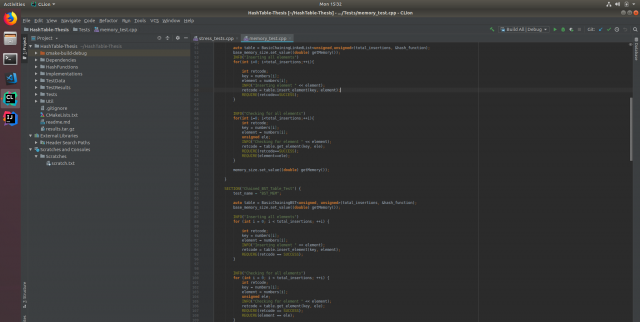Carleton University - School of Computer Science Honours Project
Winter 2019
Examining the Experimental Differences in Different Hash Table Implementations

ABSTRACT
Data structures provide computer scientists and software developers with various tools to suit the unique requirements of the software they create. The hash table is one such data structure that stores key/value pairs, and there are many implementations that suit different scenarios. While computer programmers may consider the differences between linked lists, arrays and binary search trees, few consider the differences between implementations of hash tables. This paper examines the experimental differences in several unique hash tables to demonstrate the benefits of choosing a hash table carefully to suit its purpose. By examining the results from the constructed tests, as well as research on theoretical characteristics, the following paper concludes that even if specific use cases would benefit from the characteristics of specific hash tables, many use cases would be unable to identify any meaningful difference between the hash tables tested.